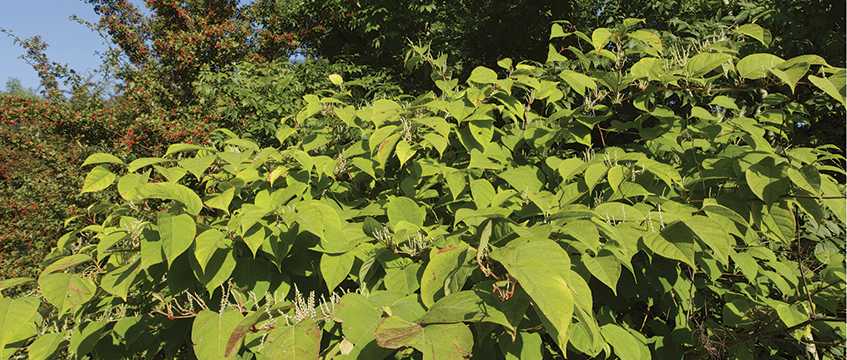The Court of Appeal has upheld a ruling that landowners can claim damages in cases where the pernicious weed known as Japanese knotweed encroaches on their property, potentially harming its value.
In a case with wide implications for property owners across the country, the court upheld a damages award in favour of two South Wales owners who sued Network Rail after the knotweed from a railway embankment encroached onto their properties.
While the court ruled that the homeowners in this case were not able to claim in private nuisance solely because of the diminution in market value of their properties as a result of the presence of Japanese knotweed, it found that they were entitled to damages because the weed – which grows quickly and spreads through underground roots, or rhizomes – had diminished their ability to enjoy the amenity and utility of their properties.
Announcing the decision, the Master of the Rolls, Sir Terence Etherton said: “Japanese knotweed, and its roots and rhizomes, does not merely carry the risk of future physical damage to buildings, structures and installations on the land; its presence imposes an immediate burden on landowners who face an increased difficulty in their ability to develop, and in the cost of developing, their land, should they wish to do so, because of the difficulties and expense of eradicating Japanese knotweed from affected land.
“In this way, Japanese knotweed can fairly be described as a natural hazard which affects landowners’ ability fully to use and enjoy their property and, in doing so, interferes with the land’s amenity value.”
However, he said that the purpose of the tort of nuisance is “not to protect the value of property as an investment or a financial asset”, but rather to protect the landowners’ use and enjoyment of the land.
As a result, future claims over encroachment of Japanese knotweed will need to focus on that plant’s impact on amenity, rather than on market value, even though under the Council of Mortgage Lenders’ policy, where Japanese knotweed is within seven metres of a habitable space, the valuation of a property can be affected. As a result, a number of lenders make special provision in their mortgage policies for that situation.
Stephen Williams and Robin Waistell, who own two adjoining bungalows in Llwydarth Road, Maesteg, South Wales, were awarded more than £30,000 in total at Cardiff County Court, in a decision upheld by the Court of Appeal. Network Rail was refused permission to appeal to the Supreme Court, but will be able to petition the highest court directly.
To send feedback, e-mail jess.harrold@egi.co.uk or tweet @jessharrold or @estatesgazette










